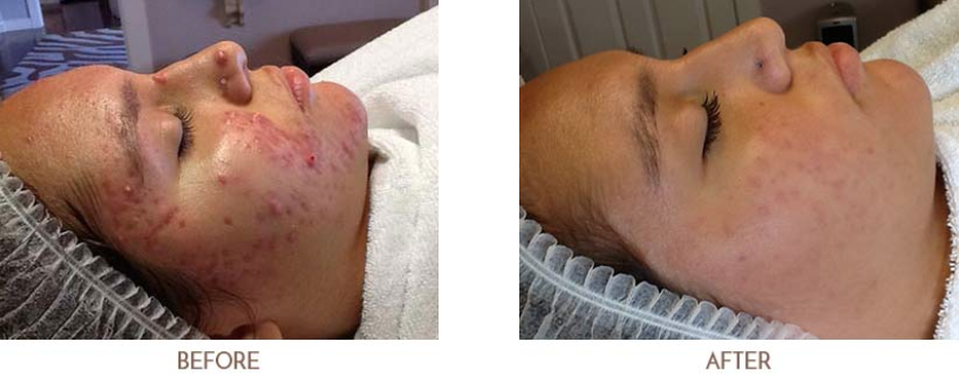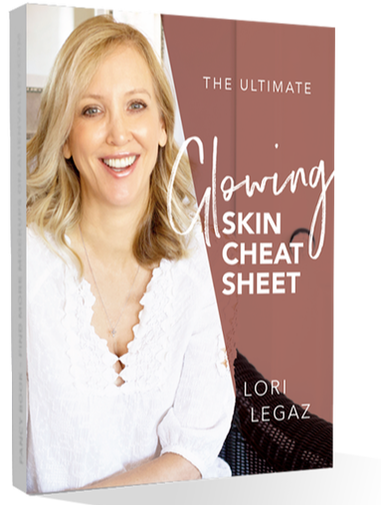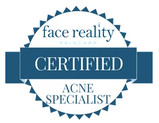|
Hormonal acne is exactly what it sounds like: acne tied to fluctuations in your hormones. However, the medical community is mixed when it comes to defining hormonal acne. The Mayo Clinic cautions against the term, because it isn’t always associated with a hormonal imbalance (and therefore, products advertising “natural hormone remedies” aren’t effective). Others say the term is redundant. Technically speaking, all acne is hormonal, since it develops in response to hormonal changes. Whatever you call it, acne can be incredibly frustrating. And although it’s typically associated with hormone fluctuations during puberty, hormonal acne can affect adults of any age. What is hormonal acne?Hormonal acne is linked to the overproduction of sebum (an oily substance secreted at the base of hairs to protect and lubricate the skin). This tends to be a direct result of hormonal changes — especially a rise in androgens such as testosterone — hence the wide usage of the term “hormonal acne.” The four components of hormonal acne are:
This process can lead to pimples, whiteheads, and blackheads — or in some cases, cystic acne (tender bumps that form deep under the skin and don’t come to a head on the surface). During puberty, hormonal acne usually appears on your forehead, nose, and chin (otherwise referred to in your T-zone). However hormonal adult acne often forms on the lower part of your face — including the bottom of your cheeks and around your jawline. How to prevent and control hormonal acneUnfortunately, many causes of hormonal acne (like hormonal fluctuations, genetic predisposition, or pre-existing medical conditions) occur whether we like it or not. But there are some measures you can take to help prevent the onset or worsening of hormonal acne. 1. Managing Your StressStress floods our brains with adrenaline and cortisol — hormonal changes that may worsen acne, especially if you’re already prone to pimples. And be sure to get your beauty sleep! Sleep deprivation is considered one of the main acne triggers, since it disrupts hormone levels and unsettles the chemical balance in your skin. 2. Eat HealthyAvoid simple carbohydrates (found in white bread, chips, and white potatoes), and sugary drinks, as they increase blood sugar levels and can have an impact on hormones. Instead, aim for Omega-3 fatty acids, plant-based foods, and a cup or two of green tea per day. These are all high in antioxidants and can help fight the inflammation of a breakout. 3. Avoid Sweaty EnvironmentsWhere possible, avoid areas with high heat and humidity — as excessive sweating can worsen your outbreaks and make inflamed, infected pimples worse. Similarly, try to reduce the amount of time your skin is exposed to sweat by rinsing off immediately after you exercise. 4. Be Kind to Your FaceIt may be tempting to want to buff out facial imperfections, but too much washing and scrubbing can remove natural oils from the skin — causing your face to respond by producing even more oil and making hormonal acne worse. Wash your face no more than twice a day, using a mild cleanser and warm (not hot) water. Avoid harsh or exfoliating scrubs, and whatever you do, refrain from scratching, scraping, or picking pimples. Hormonal Acne TreatmentsHormonal acne treatment methods can run the gamut from over the counter to prescription. Some will suggest topical retinoids, benzoyl peroxide, or tea tree oil applied to the skin… while others will recommend oral medications like antibiotics or contraceptives. Fortunately, there are other ways to safely clear your complexion without dermatologists or prescription medications. Hormonal acne skincare productsOne of the best things you can do for your hormonal acne is to be mindful of the products you use to treat it. Surprisingly, many skincare product lines have ingredients that are incompatible with acne-prone skin — and can actually make hormonal acne worse by clogging pores. At Simply Skin, I recommend the Face Reality skincare program: a personalized and adaptive treatment that includes a suite of products tailored specifically to your skin type. It includes only high-quality skin replenishing ingredients and produces over a 90% success rate in 3 months. Facials for hormonal acneIt’s no secret that facial treatments can rejuvenate and nourish your face, making your skin look healthier. But many don’t realize that some facials are specifically designed to clear and prevent hormonal acne. An acne facial is a medical skin treatment that not only helps to address breakouts, but also speeds up at-home acne treatments, making it an excellent addition to your skincare routine. In addition to the Face Reality system, I also recommend the Ultrasonic Dermasound — the ultimate non-invasive facial treatment for hormonal acne. Dermasound uses gentle sound waves to loosen dead skin cells, cleanse clogged pores, and enhance the penetration of acne products. In as little as 6-10 treatments, it can clear your complexion and restore skin to a smooth, youthful glow — and the results speak for themselves. Clearing hormonal acne for goodTreating hormonal acne looks different for every individual — which is why it’s crucial to work with a licensed esthetician that will customize a skincare regimen for your unique needs.
My Acne Treatment Promise means that I will help clear up your hormonal acne in 3-6 months, using the most effective treatments in the industry. Schedule a free consultation today to learn how to finally get rid of your hormonal acne and uncover the clear complexion you’ve been dreaming of.
0 Comments
Your comment will be posted after it is approved.
Leave a Reply. |



